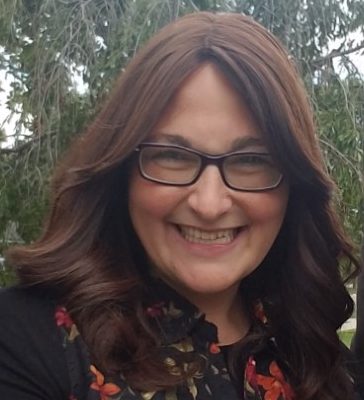A New Identity

As a kid, as soon as my parents settled down for their Shabbos afternoon nap, I’d disappear into the study and read and reread my adoption papers

As Told to Rochel Burstyn
WAY BACK The orphanage ignited long-forgotten memories inside me: the yellow walls! Pink tiles! Even the smell! Everywhere I went people stared. I understood — you can tell a Roma gypsy a mile away. We’ve all got similar high cheekbones coloring eye shape
I ’ve always identified with Queen Esther; besides sharing a name I too was adopted at a young age and wasn’t raised by my biological parents.
I wonder how much Queen Esther knew about her parents. Did she like me stare in the mirror wondering if she looked like her mother? Her father? Grandparents? It is difficult to move securely into the future when your past is a mystery.
I’d always been filled with curiosity a desire to connect to my roots. As a kid as soon as my parents settled down for their Shabbos afternoon nap I’d disappear into the study and read and reread my adoption papers mouthing the unfamiliar names to myself. (“Timea” was the name on my birth certificate.) When I was 13 my exasperated mother told me — to my delight — “I know what you’ve been doing. Here keep the whole file.”
I’d grown up feeling different knowing I was different. As a teen I’d slather on foundation trying to lighten my skin. My entire life bold kids and forthright adults have asked “Why are you so dark?” The question frustrates me: Why are you so white?
The real answer is that I was born to nomad Gypsies in Hungary. It was a closed adoption meaning my biological parents chose to keep their contact information from me even after I turned 18 or 21 a fact which has always infuriated me. How dare they bring me into this world and then not acknowledge my existence? Why don’t they want to know me? Why did they give me up? Did they give up my siblings as well? Are they good people or bad people — and which traits did I inherit? Do they regret blocking me from contacting them?
My adoptive parents both educated professors with two sons wanted to adopt; my mother desperately wanted a little girl to name after her older sister Rachel who had been lost in the Holocaust. Because of my mother’s Romanian lineage she wanted to adopt from Romania but was guided to Hungary instead where the children were purportedly healthier and hardier. After agreeing to a Hungarian adoption my parents were shown a picture of small malnourished three-year-old me — enlarged so I’d appear bigger and healthier — and asked if they wanted me.
They flew over to meet me and gave me a family picture to keep when they left. I went around clutching that family picture and once when I dropped it dissolved into hysterical tears. Unbeknownst to me that was a pivotal moment in my life; my response showed my caregivers that I felt connected to this family that I was ready to be adopted to love and be loved in return. They contacted the authorities who set the adoption in motion.
Miraculously only a few weeks later the adoption paperwork was complete. I remember snippets from when my family came to get me: My mother’s green corduroy shirt the purple sweater I was wearing.
The stuffed yarmulke-wearing dog my brother Elie gave me, which I promptly named “Putchkale.”
I remember saying goodbye to everyone at the orphanage, the four of us — my parents, Elie, and me — holding hands and walking out of the big gate, my mother shuddering and saying, “We’re never going back there,” then strolling down a long, wide path together singing a Hungarian children’s song as they walked me into my fortunate future.
Though I was barely four, my life became full of “firsts.” The first time I saw a camera. The first time I saw a bush blossoming with pink flowers beyond the orphanage gates, touching the blossoms, smelling them. My first bath. My first hug, my first kiss. My first plane ride. Meeting family members. (My mother, fluent in Hungarian, had to translate, which she found exhausting.)
My conversion was a few weeks later — my mother was nervous because I didn’t know how to swim, but she was instructed to drop me into the mikveh. I resurfaced and cried “Igen!” (“Again!”). I came out and got dressed, and there was my father dancing and singing with the rabbis.
My father said, “I think she looks like an Esther’ke,” referring to his late aunt. My mother insisted I looked like a Rachel, so I became Esther Rachel.
My mother stopped talking Hungarian around me so I was forced to communicate in English. I no longer understand Hungarian. Life continued, and it was great. My parents were wonderful to me, giving me everything I ever needed and wanted. I had dancing lessons, horseback riding lessons, and other privileges. I ended up choosing to board at an out-of-town Bais Yaakov for high school, coming home every Shabbos to be with my family. Aside from feeling different — how many other Bais Yaakov girls hail from Hungary, are adopted, and have been megayer? — I thrived and was happy.
Oops! We could not locate your form.







